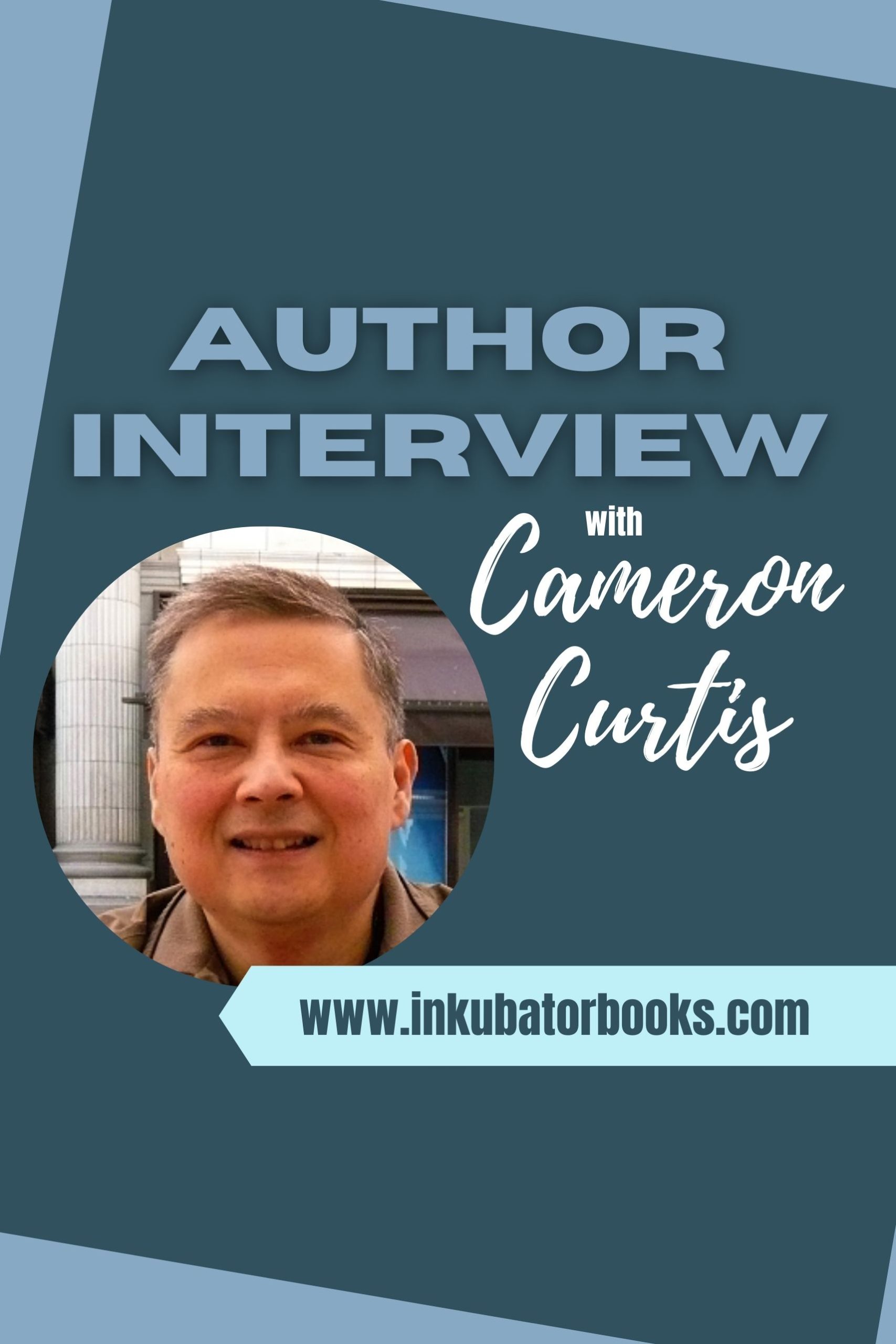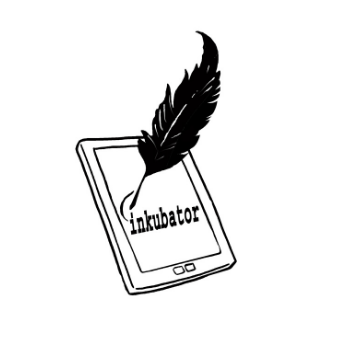Today, we’re speaking with Inkubator Books’ author, Cameron Curtis. Cameron is the author of the Breed action thriller series.
Inkubator Books: When did you start writing?
Cameron Curtis: I started writing short stories when I was ten years old. They were flights of imagination. I also read everything I could take out of the library. When I was fifteen, I wrote my first full-length novel, a military thriller. I still have it and I’m surprised by how my style has evolved. The plot was simple but good. Characterization was good. It was the writing that was uneven. Some chapters, I could lift out and use today. Other chapters were pretty bad.
IB: What does a typical day of writing look like for you?
CC: I don’t think there is a typical day. I operate in two modes. The first is when I am actively writing a novel. The other mode is when I am between novels, thinking up the next plot.
When I am actively writing a novel, I get up and go to breakfast with my tablet and working materials. I put my head down and pound away for anywhere from three to eight hours straight, working through a light lunch. Later, I go to dinner or hang with friends. I push very hard in this mode. At times, I return to writing later in the evening and pull an all-nighter. In this mode, I can do a first draft in four to six weeks.
When I am between novels, I spend a lot of time reading. I go for walks and let my imagination run. I usually have a few ideas for my next novel, and allow them to perk away. I can’t force the idea to come together. I have a roadmap. A final scene I want to play, a couple of scenes in the middle. But that road map is sterile at that stage. Then, at some point, inspiration strikes. There is a flash that brings everything together. A special ingredient that makes the novel come alive. At that point, I start to develop a more structured outline.
IB: Do you base your characters off people you know or are they all the product of your imagination?
CC: The characters are the product of my imagination, though I may draw traits from people I know. I also have a physical image in my mind of the character. I tend not to describe my characters physically, and allow the reader to imagine a picture based on how the character acts, and how other characters react to him. Usually, when I ask a reader to describe that character, they come very close to my image in the important respects. If I have that character in my mind, his or her physicality enters my writing unconsciously and communicates itself subliminally. I like that effect. When I read lengthy physical descriptions of characters in other writers’ books, I turn off. It feels workmanlike. I prefer to create my own image of the character.
IB: What’s the most difficult part of your writing process?
CC: The most difficult part is finding the spark that breathes life into the novel. I have very little control over that. The various pieces of the story swirl around in my head. The inspiration strikes unexpectedly, but when it hits, I know the story will be special.
IB: What comes first for you – plot or characters?
CC: Plot and characters run on parallel tracks. I have an idea of the story I want to write, but that’s only the skeleton of a plot. I have an idea of the characters I want to populate the story. As the story develops, the characters and plot inform each other in a reflexive manner. Plot events happen, characters act and react. Different threads interweave. I would describe the interaction between characters and plot in my process as “reflexive” in that they affect each other.
IB: Which of your books is your favorite? Why?
CC: I don’t have a favorite. Each of my novels has its own spark, so each is special to me in its own way.
IB: How would you describe your ideal reader?
CC: My ideal reader loves action, with well-developed characters and interesting plots that draw from burning issues of the day. My readers find satisfaction on multiple levels, so there is something there for everyone. Close Quarters is a bang-up adventure thriller, but it is soaked in religious allegory.
IB: What are you doing when you aren’t writing?
CC: Going for walks, hanging with friends, reading. Always reading. I try to stay current with what’s going on in the world. I look for both sides of every issue. I’m a red-pill kind of guy. I think readers who finish my books find they’ve been red-pilled, and it’s often an effect they didn’t expect.
IB: What does your writing space look like?
CC: I write in nice, airy restaurants, pubs, and coffee shops.
IB: Have you ever traveled to research for a book?
CC: I travel all the time, but never to research a book. When I write a novel, I draw on my experiences while traveling.
IB: What genres do you like to read? Who are some of your favorite authors?
CC: I read a lot of nonfiction. Often, technical material. I don’t think I have any favorite authors. I read a lot in the military and psychological thriller genres. I love a good adventure story. I pay attention to how a writer’s voice differs from my own.
IB: How do you come up with names for your characters?
CC: Ah, THAT is a great question. I put a lot of thought into a character’s name. Remember how we talked about describing characters? In my opinion, a character’s name should tell you everything you need to know about him. That’s the secret, and it’s not easy. Imagine a man named “Breed” and you don’t need to be told anything else. One of my biggest issues with books I read is that the names of the characters don’t suit the character being described. I read the book, formulate an image of the character in my mind, and every time the character’s name comes up, it’s like a slap in the face. It jars me out of the spell.
IB: What was your favorite childhood book?
CC: It’s hard to name a favorite. I’ll give you the top three. Kim by Rudyard Kipling. Children of the Atom by Wilmar Shiras. The Three Musketeers by Alexander Dumas.
IB: Have you ever abandoned a book you were writing? How did you know it was the right thing to do?
CC: I’ve never abandoned a book. I set it aside when something more pressing comes up. I always plan to return. I write short stories to explore characters and themes. I once wrote a short story that I intended to be more. Put it away and came back after a year. The story became the last chapter of a complex novel.
IB: Do you have any tips for first-time authors?
CC: Write your book. Don’t let perfection be the enemy of the good. You can always revise. Also, killing your darlings is one thing, but if there is a powerful line you know is the strongest in the book, don’t let anyone cut it. You have to trust yourself.
IB: Who inspires you?
CC: Ah, now that is a secret.
IB: If you could eliminate one thing from your daily life, what would it be?
CC: Nothing, really. There is so much going on, the unimportant stuff falls away.
IB: Do you have any pets?
CC: No, but I am dying for a Pomeranian.
IB: How do you approach your genre in a unique way?
CC: I don’t try to be unique. I write the way I write. When I read other authors, I appreciate their work, but study how their voices differ from mine. Noticing a difference is a common experience for me, which I take as evidence of a different approach. I can’t explain what makes it so.
IB: How do you manage the “whodunit” aspects of your story as far as clues and revelations? Do you outline?
CC: I always outline. That’s what we do as authors. Manage the release of information. I make use of foreshadowing, then I deliver the payoff.
IB: How do you relax?
CC: Walking and reading good books.
IB: Who are your first readers when you write a new book?
CC: There are a handful of friends I trust to beta-read a finished draft. Before we get there, we read our work out loud to each other. I find this useful in the development of voice.
IB: What’s one thing you wish your readers knew about you?
CC: This process isn’t about me, it’s about them. So long as they connect with my writing, enjoy themselves, and have a satisfying experience, I’m happy.
IB: Which do you enjoy writing more: dialogue or internal thoughts?
CC: Same thing. I write in the first person, so there is very little difference.
Thanks to Cameron Curtis for sitting down with us today.
Want to read Cameron’s books? Check out his titles on Amazon.

